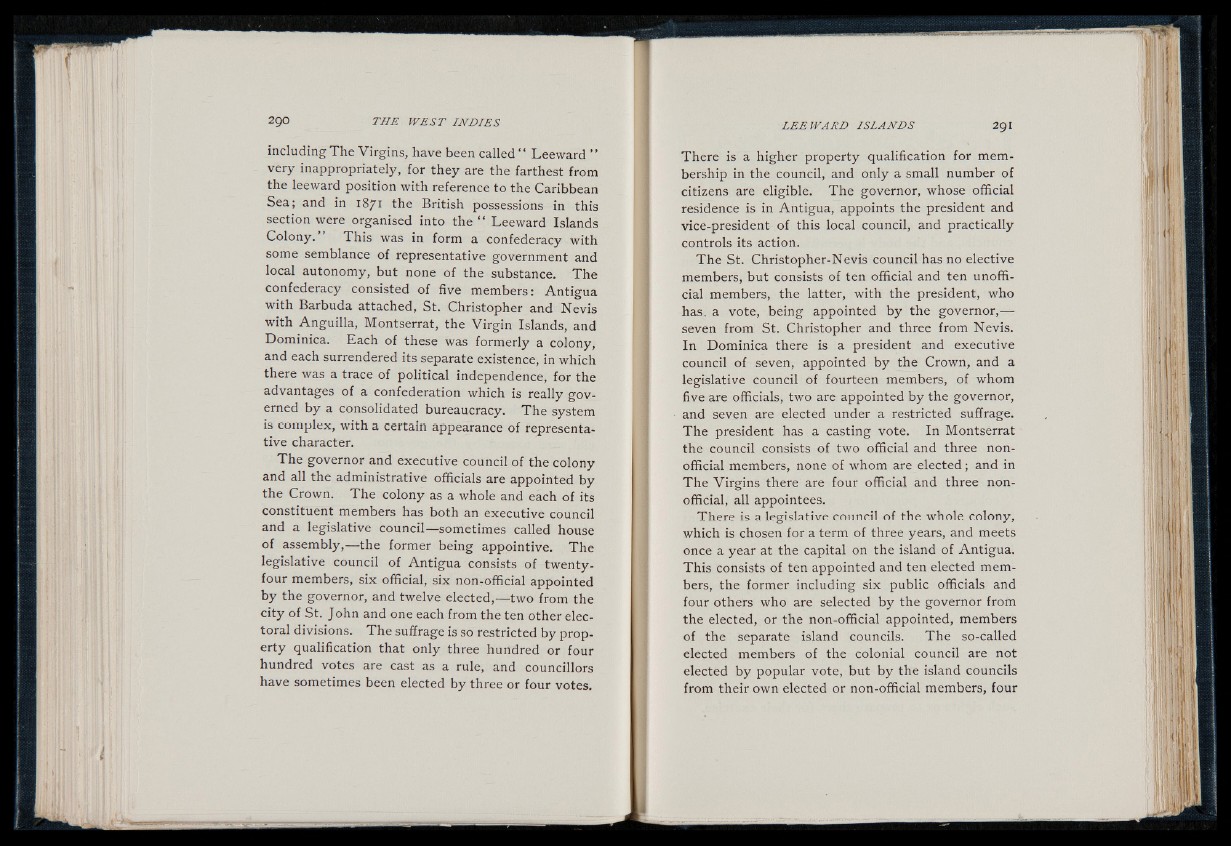
including The Virgins, have been called “ Leeward ”
very inappropriately, for they are the farthest from
the leeward position with reference to the Caribbean
Sea; and in 1871 the British possessions in this
section were organised into the “ Leeward Islands
C o lon y .” This was in form a confederacy with
some semblance of representative government and
local autonomy, but none of the substance. The
confederacy consisted of five members: Antigua
with Barbuda attached, St. Christopher and Nevis
with Anguilla, Montserrat, the Virgin Islands, and
Dominica. Each of these was formerly a colony,
and each surrendered its separate existence, in which
there was a trace of political independence, for the
advantages of a confederation which is really governed
by a consolidated bureaucracy. T h e system
is complex, with a certain appearance of representative
character.
T h e governor and executive council of the colony
and all the administrative officials are appointed by
the Crown. T he colony as a whole and each of its
constituent members has both an executive council
and a legislative council— sometimes called house
of assembly,— the former being appointive. The
legislative council of Antigua consists of twenty-
four members, six official, six non-official appointed
b y the governor, and twelve elected,— two from the
city of St. John and one each from the ten other electoral
divisions. T he suffrage is so restricted by property
qualification that only three hundred or four
hundred votes are cast as a rule, and councillors
have sometimes been elected by three or four votes.
There is a higher property qualification for membership
in the council, and only a small number of
citizens are eligible. The governor, whose official
residence is in Antigua, appoints the president and
vice-president of this local council, and practically
controls its action.
The St. Christopher-Nevis council has no elective
members, but consists of ten official and ten unofficial
members, the latter, with the president, who
has. a vote, being appointed by the governor,—
seven from St. Christopher and three from Nevis.
In Dominica there is a president and executive
council of seven, appointed by the Crown, and a
legislative council of fourteen members, of whom
five are officials, two are appointed by the governor,
and seven are elected under a restricted suffrage.
T he president has a casting vote. In Montserrat
the council consists of two official and three nonofficial
members, none of whom are e le c ted ; and in
T he Virgins there are four official and three nonofficial,
all appointees.
There is a legislative council of the whole colony,
which is chosen for a term of three years, and meets
once a year at the capital on the island of Antigua.
This consists of ten appointed and ten elected members,
the former including six public officials and
four others who are selected by the governor from
the elected, or the non-official appointed, members
of the separate island councils. T h e so-called
elected members of the colonial council are not
elected by popular vote, but by the island councils
from their own elected or non-official members, four